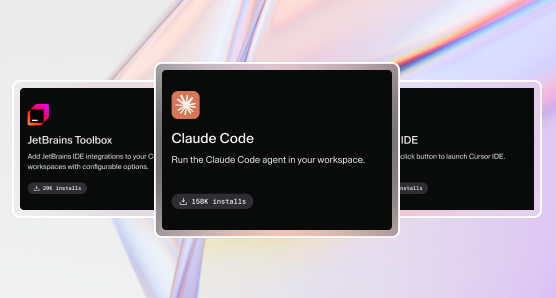This article walks you through how to configure images for use with CVMs, as well as how to access images located in private registries.
Image configuration
The following sections show how you can configure your image to include systemd and Docker for use in CVMs.
systemd
If your image's OS distribution doesn't link the systemd init to /sbin/init,
you'll need to do this manually in your Dockerfile.
The following snippet shows how you can specify systemd as the init in your
image:
FROM ubuntu:20.04
RUN apt-get update && apt-get install -y \
build-essential \
systemd
# use systemd as the init
RUN ln -s /lib/systemd/systemd /sbin/init
When you start up a workspace, Coder checks for the presence of /sbin/init in
your image. If it exists, then Coder uses it as the container entrypoint with a
PID of 1.
Docker
To add Docker, install the docker packages into your image. For a seamless
experience, use systemd and register the docker service so
dockerd runs automatically during initialization.
The following snippet shows how your image can register the docker services in
its Dockerfile.
FROM ubuntu:20.04
RUN apt-get update && apt-get install -y \
build-essential \
git \
bash \
docker.io \
curl \
sudo \
systemd
# Enables Docker starting with systemd
RUN systemctl enable docker
# use systemd as the init
RUN ln -s /lib/systemd/systemd /sbin/init
Private registries
To use CVM workspaces with private images, you must create a registry with authentication credentials. Private images that can be pulled directly by the node will not work with CVMs.
This restriction does not apply if you enable cached CVMs.


